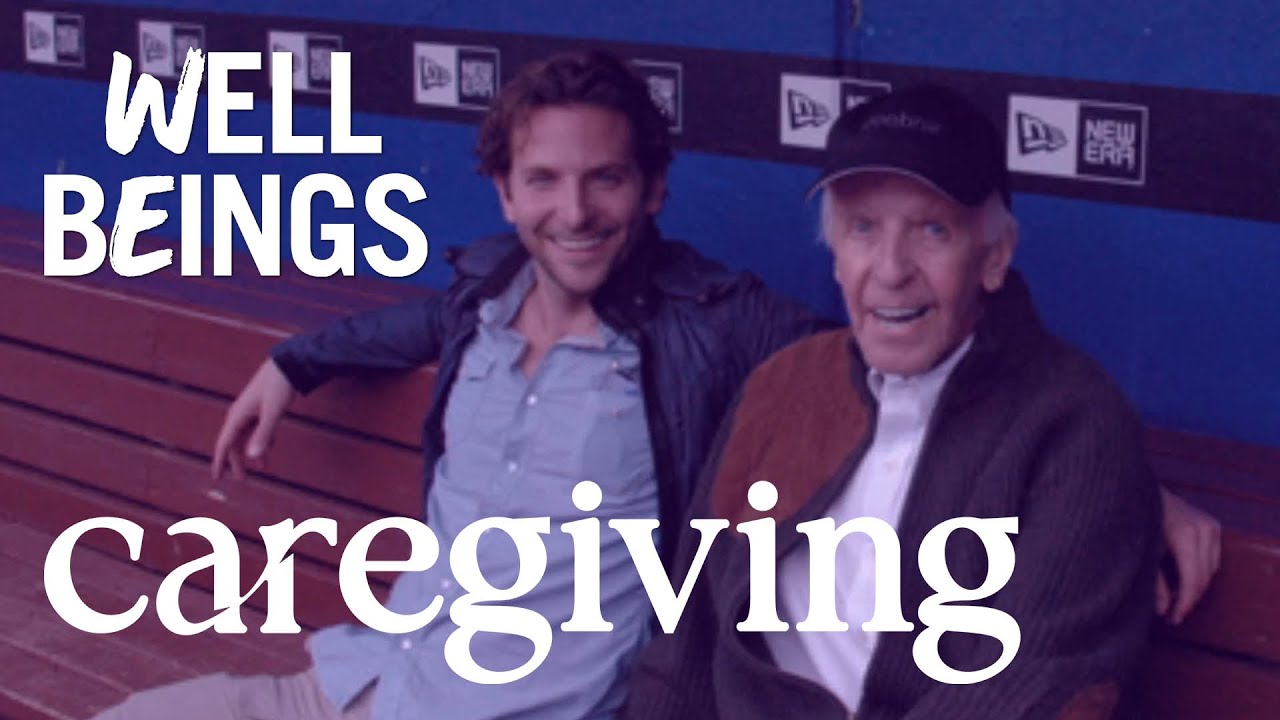
collection
Written by Tom Chiodo Contributor Developing documentaries & special projects for public media.
Nov 15, 2024 Forbes.com

According to a new RAND Report, there are an estimated 53 million to 105.6 million U.S. adults providing unpaid caregiving for family or friends. Many of these caregivers work a full- or part-time job while caring for a loved one with an injury, illness, or disability. The health and wellbeing of caregivers extends to the workplace, and both employers and employees can benefit from caregiver-friendly policies. However, many employers are unaware of how many of their employees are unpaid family caregivers. More than 70% of workers have some type of caregiving responsibility, but more than half of these employees have not shared their caregiving status with their employer. Instead, many caregivers struggle in silence, attempting to balance their career with their caregiving responsibilities. This can lead to negative outcomes for the caregiver, and their employer. However, when working caregivers have the support and resources they need, they can be an asset to their employers, contributing distinct and high-performing skills that can positively influence workplace culture and improve talent retention. In addition, compassionate caregiving policies reduce stigma and discrimination within an organization, creating a healthier workplace environment for employers and employees.
The immense responsibility of caring for a family member or friend can cause many working caregivers to neglect their professional aspirations. A report from the National Alliance for Caregiving and AARP found that 70% of working caregivers experienced work-related challenges due to their caregiving status, and 61% of informal caregivers experienced a change in their employment due to their dual roles. These changes range from reducing work hours to taking a leave of absence or leaving the workforce entirely, resulting in an estimated $25.2 billion in lost productivity. Additionally, the stresses of informal caregiving, compiled with pressures of work and family, cause caregivers to experience higher rates of depression, anxiety, high blood pressure and obesity. Poor health outcomes for caregivers contribute to increased healthcare costs for employers. Creating a care-friendly workplace can help employers mitigate these costs and improve their company’s culture in the process.
Before a company can become more care-friendly, employers must identify that a need for caregiving programs and policies exists. To do so, someone must speak up on behalf of caregivers in the workplace and bring attention to the challenges that they face. “The best way for [caregiving]
programs to be successful is if there is a champion at the leadership level who can acknowledge their own experience as a caregiver and recognize that their employees are probably going through a similar circumstance,” says Lindsey Niemeier, president of TCARE.ai, a digital, data-driven caregiver support platform founded in 2017.
Inviting caregivers to share their stories via anonymous surveys, company-wide campaigns, employee resource groups, or town hall meetings can help employers gain a better understanding of their employees’ care experiences. Once an employer becomes aware of the challenges facing caregiving employees, and is resolved to address those problems, platforms like TCARE.ai can help companies develop effective, personalized programs to meet caregivers’ needs. Some companies may already offer benefits that can be useful to caregivers, but their employees may not be aware of them. In other cases, there may be gaps that employers can fill without raising costs for the company. In fact, when a company supports the health and wellbeing of its employees, it has a positive economic impact on the organization.
While many employers may believe that paid leave for caregivers will increase costs, research indicates that paid leave can reduce costs by allowing caregivers to address smaller health issues before they can escalate and require extended FMLA leave. Additionally, AARP reports that for every dollar a company invests in flexible time and remote work options for employees, they can receive $1.70 to $4.45 in ROI. Paid caregiving leave with job security can improve financial outcomes for employees by helping them mitigate costs of caregiving, which can be debilitating for lower-income families and workers of color, in particular. Caregiving leave can also improve health outcomes for caregivers and care recipients. According to Contagion Nation: A Comparison of Paid Sick Day Policies in 22 Countries, sick adults have better health outcomes for acute conditions like heart attack or stroke when they receive care from a loved one.
Paid caregiving leave can improve outcomes for employees and employers, but it does not eliminate many of the challenges associated with caregiving, such as navigating the medical system, finding relevant information, and choosing a healthcare provider. When organizations offer comprehensive caregiver support programs, in addition to paid caregiving leave, employees are more equipped to manage their responsibilities at home and at work. According to an upcoming report from TCARE.ai, effective caregiver support programs may include the following benefits:
Meal or Food Delivery
Progressive care policies can help organizations create a person-first workplace environment, which increases loyalty among current employees and attracts top talent. Employees who receive caregiving benefits are 30% more likely to remain with their employer, according to a report from AARP.
Caregivers cultivate unique skills that can make them an asset to any workplace. A survey from the Rutgers Center for Women in Business outlines how the caregiver’s skills can translate into the workplace. For example, caregivers demonstrated improved empathy, emotional intelligence, collaboration and teamwork, which contributes to increased retention, engagement, and innovation in the workplace. Caregivers also reported elevated levels of “cognitivity,” the cognitive labor required to maintain smooth and efficient business operations. These interpersonal and organizational skills help employees with caregiving experience stand out among their colleagues as valuable team members and strong leaders.
Caregivers are an integral part of our communities, our families, and our workplaces, but their hard work often goes unnoticed. Employers can do their part to recognize and support the caregivers within their organization by offering effective programs and policies that create a people-first company culture to the benefit of all employees.
Follow me on LinkedIn.

Tom Chiodo Executive producer Special Projects, National Productions at WETA, flagship PBS station in Washington D.C., developing primetime documentary films and original digital content, accompanied by national impact and engagement campaigns, for 330+ PBS stations. Recent projects include: Ken Burns presents Hiding in Plain Sight: Youth Mental Illness (2022); and Emmy-nominated documentary The Gene: An Intimate History (2020). More than 30 years experience in media, communications, television, and entertainment industry. Senior positions at Entertainment Industry Foundation, Rubenstein Associates, U.S. Department of Health & Human Services, and Massachusetts Department of Public Health. Co-author “Home Care for Respirator Dependent Children” New England Journal of Medicine. Contributing writer Forbes.com. 2023 judge for National Academy of Television Arts & Sciences News & Documentary Emmy Awards.
The Well Beings Blog supports the critical health and wellbeing of all individuals, to raise awareness, reduce stigma and discrimination, and change the public discourse. The Well Beings campaign was launched in 2020 with the Youth Mental Health Project, followed by the 2022 documentary series Hiding in Plain Sight: Youth Mental Illness (Now streaming on the PBS App), and the upcoming 2025 series, Hiding in Plain Sight: Adult Mental Illness, produced and directed by Ewers Brothers Productions, executive produced by Ken Burns, and presented by WETA, the PBS flagship station in our nation’s capital.
You are not alone. If you or someone you know is in crisis, whether they are considering suicide or not, please call 988 or the toll-free National Suicide Lifeline at 800-273-TALK (8255) to speak with a trained crisis counselor. If you don’t want to talk on the phone, you can also text. Crisis Text Line offers free mental health support. Text “10-18” or “SCRUBS” to 741741 for help. The call and text lines are open 24 hours a day.
Support Provided By
Support for Caregiving is made possible by Otsuka America Pharmaceutical Inc.; OneAmerica Financial Foundation; Comfort Keepers; CareScout Holdings, Inc.; Cherish Health Inc. dba Cherish; Care.com; Evelyn Y. Davis Foundation; Richard King Mellon Foundation; The Arthur Vining Davis Foundations; Ford Foundation; Ralph C. Wilson, Jr. Foundation; NextFifty Initiative (Next50); National Alliance on Mental Illness (NAMI); PATH Foundation; Care for All with Respect and Equity (CARE) Fund; The John A. Hartford Foundation; and the Corporation for Public Broadcasting.
Outreach and Engagement Partners
National outreach and engagement partners for Caregiving include Rosalynn Carter Institute for Caregivers; Grantmakers In Aging; Milken Institute | Future of Aging; Global Coalition on Aging; Elizabeth Dole Foundation; National Partnership for Healthcare and Hospice Innovation; National Minority Health Association; Fred Rogers Productions; Caregiver Action Network; The Coalition to Transform Advanced Care; American Association of Caregiving Youth; Caring Across Generations; SHRM and SHRM Foundation; National Alliance for Caregiving; Lutheran Services in America; Center to Advance Palliative Care; PEOPLE; and Forbes.com.
Caregiving is a Production Of
Lea Pictures and WETA Washington, D.C., in association with Ark Media. For Ark Media, Chris Durrance serves as Director and Senior Producer; Barak Goodman is Series Producer; and Ruth Fertig is Producer. Executive Producers for Lea Pictures are Bradley Cooper and Weston Middleton. Executive Producers for WETA are John F. Wilson and Tom Chiodo. Producer for WETA is Kate Kelly. Production is managed for WETA by Jim Corbley. Consulting Producer is Paul Irving.
WellBeings.org is a health and wellness resource, not a crisis or suicide response website. If you are in crisis, or experiencing thoughts of suicide, please call or text the 988 Suicide & Crisis Lifeline at 988 or the LGBT National Hotline at (888) 843-4564. The service is free and available 24 hours a day, seven days a week.